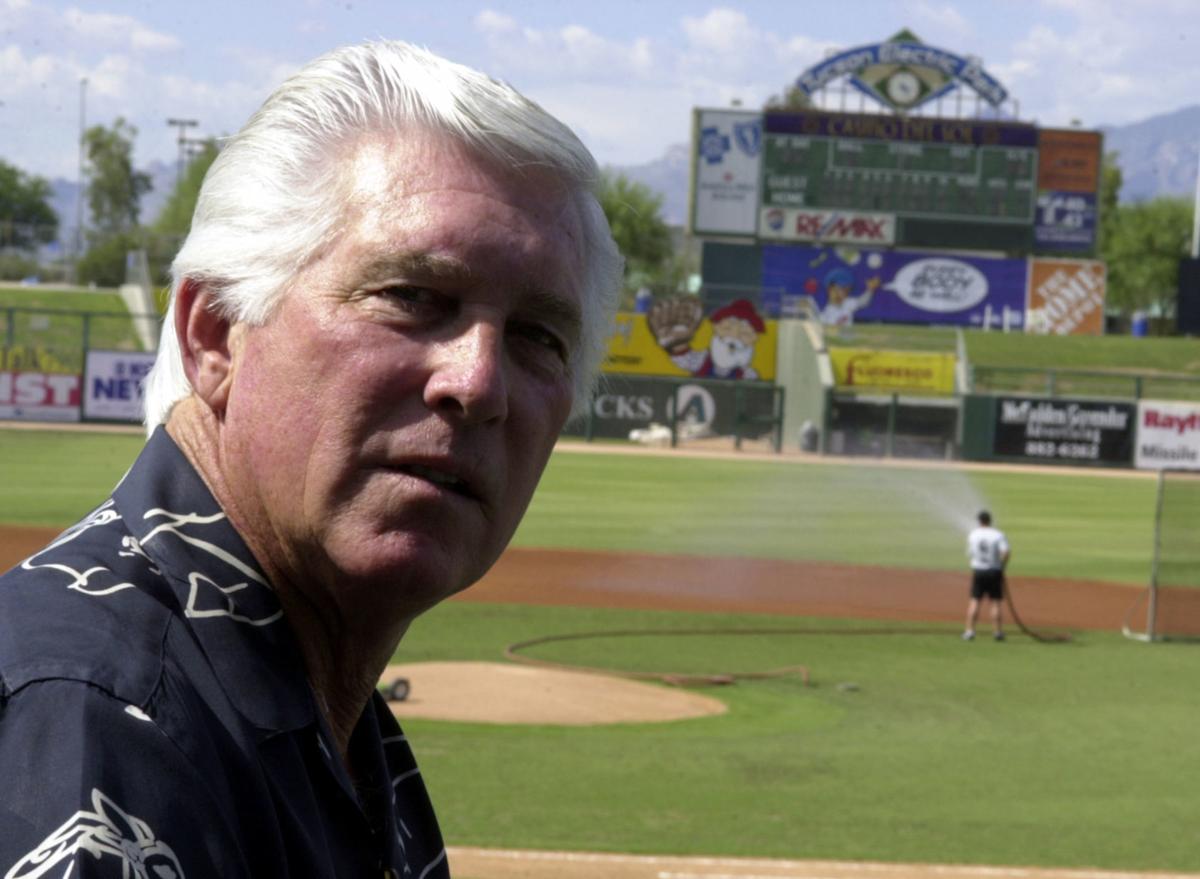Anyone hoping to write a book about the life and times of Mike Paul will be disappointed to know that the most appropriate title — “Oh, the Places You’ll Go” — has long been copyrighted.
But Mike Paul’s career wasn’t a Dr. Seuss work of fiction as much as it was an authentic baseball travelogue, from Tucson to Tampico, from Hi Corbett Field to Yankee Stadium, from Mansfield Junior High School to the 2007 World Series.
We’re using the past-tense “was” because Paul retired two weeks ago after 53 years in professional baseball. He is 75, looks 55, and the one-time “Whitey Ford of Mexico” — and Randy Johnson’s first big-league pitching coach — puts all of those years into perspective when he says “I didn’t think I’d get one day of pro ball.”
Instead, he played, coached and scouted for the Cubs, Indians, A’s, Rockies, Rangers, Nationals, Diamondbacks, Mariners, Padres and Brewers. He knows more about the men playing and pitching in the AL and NL playoffs than all of the analysts at ESPN, TBS, TNT, FS1 and the MLB Network put together. The man with the master’s degree in education from the UA won’t tell you this, but it’s true.
For the last 14 seasons, Paul was the advance scout for the Rockies. He was a one-man analytics staff before baseball bought into computer and video scouting. He can tell you if Max Scherzer is going to throw a cutter or a spinning slider before Scherzer knows.
Paul has been witness to some of the most grand moments in baseball history.
At the 1988 World Series, Game 1, Dodger Stadium, Paul — then the A’s bullpen coach — was standing next to Oakland closer Dennis Eckersley when A’s manager Tony La Russa summoned “Eck” to close out the Dodgers.
The Kirk Gibson game.
“Gibby’s homer landed about 15 feet from me,” Paul says now. “Not the best day for us.”
Oh, but there were many better days.
One of the best played out in the spring of 1967, a year after Paul pitched a four-hitter with 11 strikeouts in Arizona’s second game of the College World Series.
Bothered by a sore arm periodically during his UA days, Paul joined a local semipro team, Jameson Sporting Goods, which was used as fodder for Cleveland’s Triple-A minor-leaguers on a diamond near Hi Corbett Field.
A day later, Cleveland director of player personnel Hank Peters told the Star how impressed he had been watching “some kid really stick it to the Portland batters.”
That was Mike Paul.
“They gave me a $500 bonus,” Paul says with a laugh.
A year later Paul was in the big leagues, striking out future Hall of Famer Harmon Killebrew in the first inning he pitched as an Indian.
One of the more compelling pieces of Paul’s baseball odyssey is how he chose to be a Wildcat instead of a USC Trojan, a school down the street from his boyhood home in Downey, California.
He pitched for the ranking junior college program of the 1960s, Cerritos College of Norwalk, California, and went 13-0. In those days, the Alaskan Summer League was the destination for most of the top college players in the West. Paul found himself on a team with future big-leaguers Rick Monday and Graig Nettles.
How good was Paul in Alaska?
“I dominated,” he says, not intending to be immodest. All the top college coaches noticed.
But Paul didn’t take USC Hall of Fame coach Rod Dedeaux’s offer to be a Trojan because he was smart enough to run his finger down the USC roster and see the names of future big-league pitchers like Tom Seaver, Bill Lee and Tom House.
“I just wanted to play,” Paul says. “I’m not sure how that would’ve worked out at USC.”
So he accepted a full scholarship from Arizona coach Frank Sancet, went to the World Series with the No. 3 Wildcats, earned a degree, met and married his wife of 51 years, Rosalie Ruiz, and most importantly, got a spot on that Jameson Sporting Goods team in the spring of ’67.
“I could throw strikes,” he says. “That can take you a long way in this game.”
Mike and Rosalie made Tucson their home. He spent his offseasons selling real estate, serving as a substitute teacher and playing a lot of golf with longtime UA baseball buddies Eddie Leon, Nyal Leslie and Terry Francona.
The son of a former Detroit policeman, Paul spent the last 14 seasons traveling in advance of the Rockies, scouting future opponents, compiling a book — mentally and on paper — on everyone in baseball. In the era of analytics, many MLB teams are eliminating advance scouts, choosing to scout via video rather than using the instincts of a baseball man of Paul’s depth.
“Scouting is a dying breed,” says Paul. “A lot of scouts have lost their jobs, but fortunately there are still teams who buy into the eye test. The Rockies were great to me. It’s a first-class organization.”
Paul chose to retire this season rather than spend another six months living in hotel rooms, dealing with the stress of airport check-ins and being away from his wife, daughters and grandchildren.
“It was time,” he says. “I had a wonderful career.”





